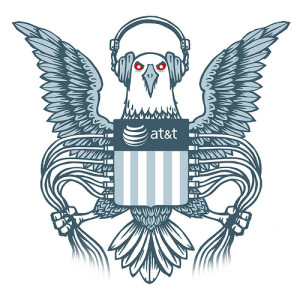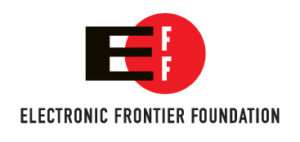Header image by Thomas Tolkien, Creative Commons
The erosion of civil liberties and our right to a private life has been well-documented over recent years, yet there is no real sign of this war on privacy abating. Privacy has become the enemy of governments, regimes and corporations seeking to increase their power and position in our new global society. This attack on our individual agency is comprehensive and shocking in its totality. We are experiencing a World War on Privacy that rivals any of our dystopian literature and techno-mythologies warning us of the generational consequences should we fall.
These issues are moving so quickly that it’s hard to keep up. New legislation keeps pushing its way through intense public protest, sometimes pausing for brief moments before attempting again in another direction. Beyond the legal battles being fought, there are private and government initiatives that are advancing regardless of democratic process or legality of their programmes.
This series of posts on World War Privacy will give a snapshot of the current issues, in the hopes that by seeing different pieces outlined together a greater sense of the magnitude of the challenges we face can be understood. Over the coming weeks, each post will look at different geographic areas and provide the signposts and links necessary for you to delve deeper to see what it is that you are facing in your local area and who you might be able to turn to for support.
Five Eyes: United States, United Kingdom, Australia, New Zealand, Canada
Awareness of the assault on our collective privacy really began with the revelation of the ECHELON programme that came to light towards the end of the 1990s. Originally created to spy on the Soviet Union and its allies during the Cold War, the programme brought on board five major Western countries that had banded together since the end of WWII (called Five Eyes) and quickly developed an agenda of “a global system for the interception of private and commercial communications.”
The USA/PATRIOT Act that followed the 911 attacks sealed the deal, undoing almost instantly years of Congress and public opposition to previous attempts to reduce the checks and balances around surveillance of criminals, potential criminals and citizens alike. This coincided with the boom in internet and computer technology that brought all of us (and our personal lives) online and ready to be profiled en masse behind a veil of intelligence agency secrecy and hidden courts.
Culminating in revisions to the Foreign Intelligence Surveillance Act, this deep-state intelligence boom in the United States was mimicked throughout the Five Eyes countries. Each taking their own path against the dignity of their citizens, the co-operation also allowed for many national laws to be circumvented by the shared use of data collected across borders.
Much has happened in the decade since. With this first part in the World War Privacy series, we’ll be jumping ahead to take a (brief) look at some of the things happening today in the United States…
United States
 Following massive whistle-blowing leaks from the likes of Mark Klein, Edward Snowden and anonymous sources through WikiLeaks (including the recent trove of CIA hacking materials), the true extent of the modern intelligence apparatus in the United States has come to light and is shocking in its scope and capability.
Following massive whistle-blowing leaks from the likes of Mark Klein, Edward Snowden and anonymous sources through WikiLeaks (including the recent trove of CIA hacking materials), the true extent of the modern intelligence apparatus in the United States has come to light and is shocking in its scope and capability.
Most recently, it has become clear that many of the tools developed for agencies such as the NSA and CIA have been obtained by other nation states and criminal organisations. The recent spate of ransomware attacks has been directly attributed to unintended blowback from these secretive programmes, as underworld figures distribute NSA technology to anybody willing to pay just a nominal sum for it.
Beyond the world of cybercrime, the invasion of privacy has begun to extend further into the physical world. The expansion of mandatory face-scanning at the borders, sophisticated biometric tracking such as iris recognition, and a resurgence in the infiltration of ‘subversive’ movements, shows a steady increase of surveillance techniques being used by local law enforcement agencies. Behind this is an ever-growing and highly secretive industry of predictive behaviour algorithms (i.e. pre-crime profiling) that is transitioning from military to domestic use.
Combine this citizen compliance obsession with lightweight drone technology and a worrying picture begins to emerge that was previously the domain of (supposedly) exaggerated oppression found in cyberpunk novels. With the policies around drone surveillance being revised as part of the authoritarian sounding National Defense Authorisation Act, it seems that this is the next step in bringing the total view of citizen activity out of cyberspace and into the real world. On the more extreme end, the sale of US military-grade surveillance drones has become a new industry as the availability of these technologies is expanded to nation states around the world.
All of this, and plenty more, is wrapped in a constant wave of legal revision and obfuscation that ensures all of this is essentially unchallengable in the courts. Indeed, when it comes to the secrecy under which these surveillance programmes are operating it has become almost impossible to find out where the boundaries of the law even exist. Forthcoming debate around re-authorisation of the FISA Amendments Act and amendments to the Electronic Communications Privacy Act look like an opportunity for something positive to emerge – a key moment for citizen lobbying of representatives to ensure that a more even-handed approach is taken regarding the legality of surveillance programmes.
And this is just from the US government… the other serious concern is the extent to which the corporate sector is exploiting consumers not just for profit, but for the accumulation of power and predictive control. There seems to be a tension between wanting to reassure the public that their privacy concerns are being heard, and working closely with government to maximise revenue potential and market access. The extent to which tech companies are at the cutting edge of privacy invasion deserves continuous and detailed scrutiny, as even a cursory glance shows that almost every aspect of our lives is being exploited without much accountability.
From the emotional vulnerabilities you display on social media, through to highly targeted profiling based on your shopping habits, a worrying increase in profiling potential medical conditions, digitally surveilling your home with robot vacuums and omniscient smart TVs, right down even to the ownership of your DNA. What you do, how you do it, and why you want to is all fair game in the eyes of our new techno-capitalist billionaire class, a large proportion of which have emerged from the United States.
 Thankfully there are many organisations in the United States fighting the good fight. The two key players are the long-standing American Civil Liberties Union and Electronic Frontier Foundation; alongside efforts such as the highly organised Electronic Privacy Information Center and the grassroots United States Pirate Party.
Thankfully there are many organisations in the United States fighting the good fight. The two key players are the long-standing American Civil Liberties Union and Electronic Frontier Foundation; alongside efforts such as the highly organised Electronic Privacy Information Center and the grassroots United States Pirate Party.
If you’re interested in resisting any of the problems outlined above, it’s worth starting with these four organisations to see how you can take action and help fight for our collective right to privacy and dignity.
Next time in our exploration of World War Privacy, we take a look at the United Kingdom and the worrying trend towards the legalisation of total surveillance without accountability or oversight…
This outline missed many important items, what other privacy updates do you know of regarding the United States? Leave a comment below and help create a better picture.





